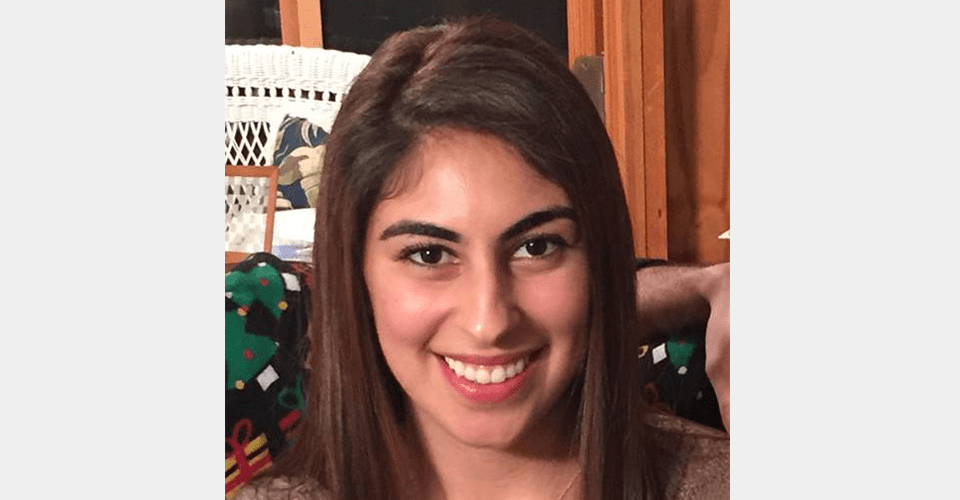by Mia Kweskin
When she’s not studying day in and day out for exams at the University of Toledo College of Medicine, Sandy Tadros has taken on a job at the university’s writing center. Her experience tutoring students at WashU’s Writing Center encouraged her to seek out opportunities outside of the medical field. Sandy updates us on the challenges of med school and discusses how writing tutoring has prepared her to become a doctor.
M: How has your med school experience been so far?
S: If I’m being honest, it has had a lot of ups and downs. Being a part of this profession is an absolute blessing but, at times, medical school really is as hard as they say. It gets tough going days upon days just studying and when you lose track of the end goal (“doctoring”), you do sometimes wonder if it’s all worth it. But the positive patient experiences intermingled in our first two years of education remind me of what a privilege it is to serve in this field.
M: What’s your favorite thing about med school? What has been challenging?
S: My favorite thing is probably learning about the human body more every day. It’s so intricate and I’m continuously amazed by its perfections and imperfections. The number one most challenging thing has been staying sane. Med school is a collection of elite students who are driven to reach perfection in everything that they do. It’s difficult to avoid being too hard on yourself when you’re not doing it all. Not in a competitive way—sometimes just stupid things like skipping a day at the gym makes me wonder…well other people went to the gym and they still studied too – am I incompetent? Crazy stuff like that. Being honest with myself and my capabilities has certainly been my biggest hurdle this past school year.
M: What specialty do you want to go into?
S: I’m not exactly sure yet. It’s switched many, many times. I originally came to med school with the hopes of becoming a psychiatrist or an obstetrician. Those are still on the list, but I’ve now added anesthesiology, and almost certainly taken off surgery, but who knows? My third year starts in two months (scary!), and that’s when our rotations take place. I’m trying to keep an open mind.
M: How does writing factor into your life now?
S: I actually started working at the writing center on the main campus here. I felt like I wanted to be involved with something not directly related to med school so I reached out to the center here—the director was super ecstatic and gave me a position. She’s been great about letting me have a flexible schedule. It’s truly been a rewarding experience. I also am an editor for the online publication, in-Training, which is run by medical students. While it’s not writing, it has given me an opportunity to continue reading other people’s work.
M: What do you miss most about being a writing tutor at The Writing Center?
S: I miss everything about working at The Writing Center. Being surrounded by intelligent and creative peers as well as a wonderful staff. Meeting new students on campus every day. Helping people find awesome ways to communicate their ideas. Even having tough sessions where I really believed I was the worst writing tutor who ever lived. I just loved working with other students in that creative environment. That’s why I’m considering working in academic medicine. I want to parallel that environment in some way during my career.
M: How did your experience as a writing tutor prepare you for med school?
S: Seeing patients is pretty similar to meeting with a student at The Writing Center actually. You’re not always sure what you’re going to get…sometimes you get a really informed patient who can articulate what’s wrong very clearly. Other times you get a very vague complaint and you have to probe a lot to figure out the underlying diagnosis. But, in the end, the patient has almost everything you need to get a few differential diagnoses—you just have to listen. Just like at The Writing Center – the author knows where the piece is going or where they want it to go, you just have to listen to them and guide them.
M: What advice would you give to pre-meds struggling through Writing 1?
S: First, I struggled through Writing 1. I was in no way prepared for writing when I started college. But, writing is important. Yes, I know that sounds like a stupid sentence that doesn’t hold much value. But it’s true. Learning how to gather information, organize it, and report it in a coherent manner…that’s basically half (at least!) of medical school. Patients don’t come to you saying the exact symptoms and signs you learned for each disease. They come with a myriad of complaints and they present it in a disorganized manner. You have to be able to organize it in your head and then communicate it clearly to other students and physicians. So yes, it can be annoying to write a paper on a book you hated, but I promise it is a helpful skill even if you can’t feel it now.
